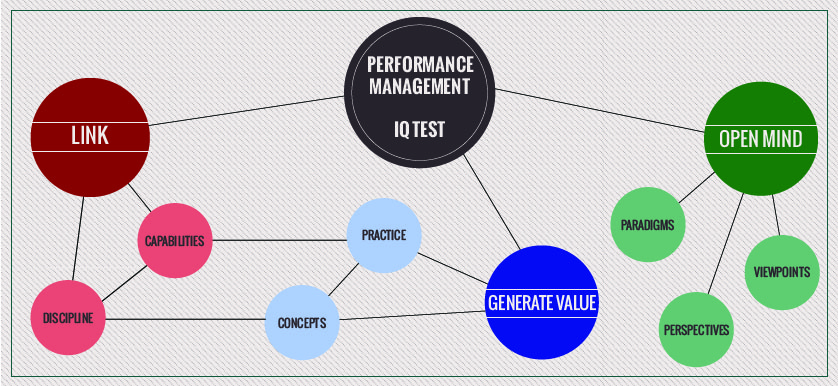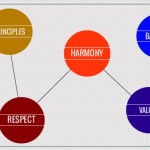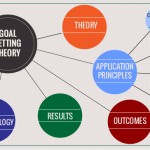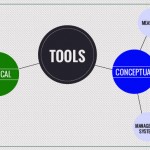Performance Management IQ Test or a hermeneutic dialectic process
smartKPIs.com Performance Architect update 3/2010
A new feature available on http://www.smartKPIs.com starting with this month is the smartKPIs Performance Management IQ test.
It consists of a set of 24 statements that appear on the screen one at the time. The task on hand is to decide what each of these statements represents from a set of 12 options:
- Mission Statement
- Vision Statement
- Goal
- Objective
- Target
- SMART Objective
- Critical Success Factor (CSF) / Value Driver
- smartKPI / Key Result Indicator (KRI)
- Metric / Performance Measure / Performance Indicator
- Key Performance Indicator (KPI)
- Initiative
- Milestone
Only one option can be selected as there should be only one option closest to the way the statement is understood and perceived.
The term “IQ test” is pretentious and used to illustrate that being smart in performance management transcends the mechanistic approach of being right or wrong. Having this in mind, the test should be used more as a guide to discover the rich diversity of views on how key terms are or should be used in performance management. Overall the test should be a fun way to rediscover the basics of a performance management glossary. Ideally it should also raise questions about what actually happens in practice, away from the prescribing nature of management books, academic articles and management consultant’s opinions.
To me there are three key learning points illustrated by the test:
1. Performance Management as a discipline contains elements that closely link it to a multitude of other disciplines and organizational capabilities: Strategy Management, Project Management, Human Resources Management, Accounting and Psychology, to name a few. Understanding such linkages and the origins of key terms are an important step in building a robust basis for architecting organizational performance.
2. The popular understanding and perception of certain terms in practice may be very different compared to academic and consultant’s viewpoints. What matters in the end is how such concepts are used in practice to generate value and not necessarily which is the “perfect” definition of what a KPI is.
As Stringer (2007) put it: “Constructions are created realities that exist as integrated, systematic, sense-making representations and are the stuff of which people’s social lives are built. The aim of inquiry is not to establish the truth or to describe what really is happening but to reveal the different truths and realities – construction – held by different individuals and groups. Even people who have the same facts or information will interpret them differently according to their experiences, worldviews and cultural backgrounds.”
3. Have an open mind in terms of rediscovering performance management through the lens of various viewpoints and be prepared to change perspectives or shift entire paradigms. According to one view, by completing the smartKPIs Performance Management IQ test you have completed a test and reviewed different opinions on specific topics. From another viewpoint (Guba and Lincoln, 1989), you have just completed a hermeneutic dialectic process, as new meanings emerge as divergent views are compared and contrasted.
Stay smart! Enjoy smartKPIs.com!
Aurel Brudan Performance Architect, www.smartKPIs.com
References- Stringer, E. T. (2007) “Action Research, 3rd Edition“, Thousand Oaks, CA, Sage Publications
- Guba, E. G. and Lincoln, Y.S. (1989), “Fourth generation evaluation“, Newbury Park, CA, Sage Publications

Tags: Aurel Brudan, Hermeneutic Dialectic Process, Management IQ test, Performance Architect Update, SMART Objective






